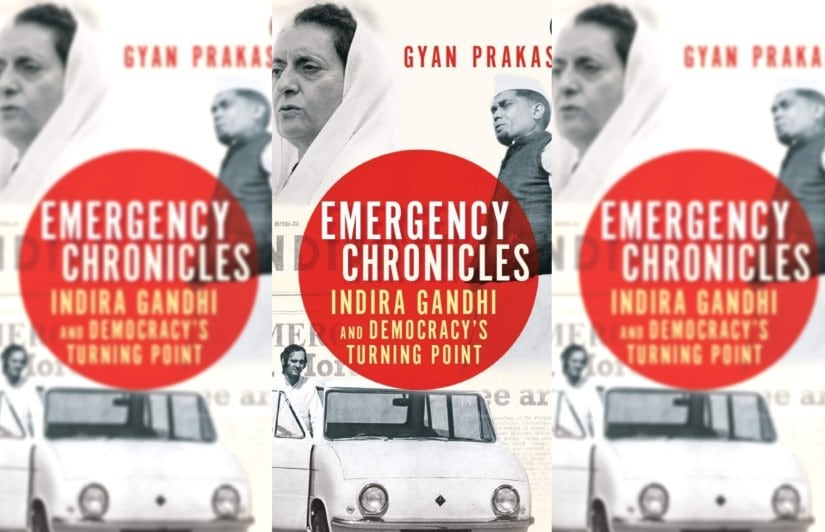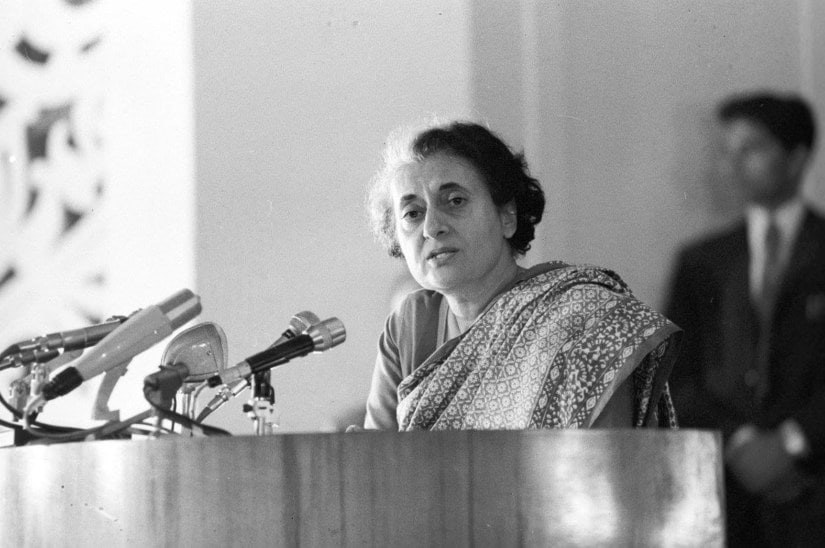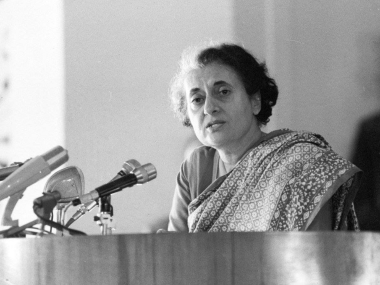In his latest work, historian and writer Gyan Prakash situates the Indira Gandhi-led Emergency in the wider context of an elastic afterlife, and presents the lessons it still holds for an increasingly conflicting present. Prakash spoke to Firstpost about why he wanted to revisit the Emergency, why he considers it a phenomenon much bigger than the cult of Indira, the neoliberal roots of the global shift to the right and the parallels one can draw between the Emergency and present-day India. What led you to re-analyse the Emergency, and what were the key areas you wanted to focus on? There is now a sizable chunk of literature on it, so what is it that Emergency Chronicles offers? What impelled me to write on the Emergency is that there is no full-length historical work on it. Much of what exists is written by journalists and politicians who assume that it began and ended with Indira Gandhi. Emergency Chronicles, on the other hand, sets this dark period in the context of India’s postcolonial history. It describes and analyses the Emergency against the background of India’s experience with democracy in the period following Independence. Furthermore, while it offers an account of the tyrannies of 1975-77— suppression of rights, denial of press freedom, etc — it also examines the Emergency as a mode of power to implement state-led modernisation schemes, all of which were initiated earlier. This includes Sanjay’s Maruti venture, which is treated not only as an example of crony capitalism but also as a wedge that pried open the controlled economy with coercion and abuse of authority. You mention in the book how the rise of right-wing forces around the world has been coupled with a shift in neo-liberalism, especially neo-liberal capitalism. What shifts have capitalist attitudes undergone? Has it been more of a case of evolution, or good old seeing opportunity? And why have people bought into it? Neoliberalism represents a structural change in capitalism. Instead of just being about trade and the market, what is distinctive about neoliberal capitalism is that it economises everything. It subjects all aspects of life to the market principle. Thus, democracy becomes not an arena to struggle for the common good but a game of winners and losers. Issues of rights and justice are trumped by a contest to determine who are the victors and who are the vanquished. When this enters the logic of institutions, such as the functioning of universities and elections, then politics becomes a contest of us versus them.
Neoliberalism reduces democracy to a battle to determine who is on top, ignoring whether or not it furthers the common good and makes everyone equal, which is the essence of self-rule.
Liberalism hasn’t had a good run either, of late. Why has that been the case? What was the state of liberalism during the Emergency, and how does it differ today? Liberalism played along with elite rule and elite agendas to give us neoliberalism. Disengaged with the project to fight for justice for all, it only provides liberal pieties of identity politics and pluralism when confronted with the neoliberal transformation of politics according to the market principle. It is only politics on the ground that combines liberal-democratic principles with demands for social and racial justice, as in the recent mid-term elections in the US, that is able to resist the politics of populist authoritarianism. [caption id=“attachment_5632421” align=“alignnone” width=“825”]  The cover of The Emergency Chronicles[/caption] In trying to find parallels between Indira’s Emergency and the Modi regime, you mention how Modi enjoys organic support that Indira did not. Why is that? What makes Modi stick as an idea despite his failures or the failure of many of his policies? And does it also point to a case where we must study the people, their political disposition as opposed to the leaders we almost always focus on? Indira Gandhi employed slogans like “Garibi Hatao” to win popular support and to project herself as a leader who had a direct connection with the people, bypassing mediating institutions like the Congress Party. She was successful for a while, but when she failed to deliver on her promise, it led to wide-spread discontent that found expression in the JP movement. The Emergency — with its slogans such as “work more, talk less,” “Maintain national unity and discipline”— was a failed attempt to address this crisis of popular consent through coercive means. Approximately four decades later, if Narendra Modi continues to enjoy popular support in spite of stunning policy failures such as demonetisation and anemic job growth, then the explanation lies in the Bharatiya Janata Party’s skillful and cynical whipping up of Hindu resentment.
With the slogans of development and Hindutva, which are really other names for neoliberalism and populist authoritarianism, Narendra Modi has hijacked the mantle of nationalism from the Congress, whose shop-worn claims as the standard bearers of the freedom struggle no longer suffice.
It is also the case that in the vastly changed mediascape of today, which is dominated by corporate media houses, he enjoys untrammelled support. This is in sharp contrast to Indira Gandhi’s time, when the state-controlled Doordarshan was the only player in town, and had a very limited reach. You make a crucial distinction between Trump and Modi, where you say the fight for equal rights has a slim history in India. Why do you think that has been the case? None of the civil movements, as you mention in the book, have been for the equal rights of minorities in India. Is it likely to change in the near future? Or are minority interests almost limited to electoral grandstanding by parties? Minorities received equal rights in the Indian Constitution as a result of the nationalist struggle against the British, not due to a specific struggle for minority civil rights. Perhaps only the Dalit movement can claim a history as a civil rights movement. The Muslims never quite developed a civil rights movement, and became torn between the Muslim League’s demand for Pakistan and the Congress Party’s nationalist politics. When the BJP seized the mantle of nationalism and gave it a Hindu majoritarian twist, the Muslims were left with no historical struggles and memories of a civil rights movement to summon. Today, unless a movement develops to combine minority rights with a civil rights struggle, the Muslims will remain vulnerable to the swings of electoral politics. [caption id=“attachment_5633671” align=“alignnone” width=“825”]  Facebook/IndiraPriyadarshiniGandhi[/caption] The book reads like a warning shot at times. Some would say it is alarmist to bring together different eras. Why are such comparisons important? What does it say of the afterlife of the Emergency, that people are inclined to endorse the very lessons we should have learnt? Does it also point to the fact that the Emergency still remains criminally under-studied and under-read? As I researched the Emergency’s history and its afterlife, it was difficult to set aside its meanings for the present. The Emergency cannot be sequestered into its twenty-month duration; it was a turning point in Indian politics. This is not to say that everything today can be traced back to that moment, but there are significant continuities, including the use of law and state power to stifle dissent. It is undeniable that the use of state power to solve the problems of governance that is happening today calls to mind the similarities with the Emergency. Brazil has become the latest country to choose a far-right leader. What does this wave suggest for the future? Are there more emergencies to come, and will the world be able to deal with them? Unless there is a mobilisation of the people for democratic rights of equality under the changed conditions of neoliberal globalisation and populist upsurge, I’m afraid we are in for a long night!


)
)
)
)
)
)
)
)
)



